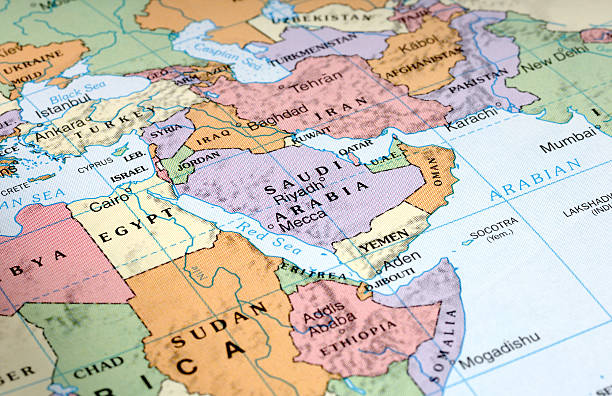
The following is among the permanent fixtures of UN Security Council resolutions on terrorism:
“Emphasizing that terrorism and violent extremism conducive to terrorism cannot and should not be associated with any religion, nationality, or civilization…”
The reality is different and reflects a multitude of contradictions.
To start with, a universal definition of terrorism does not exist because of the distinction some countries make between the actions of “freedom fighters” and “terrorists”. This does not mean that they all agree on who are the “freedom fighters”.
UN Security Council resolution 2178(2014) says that terrorism will not be defeated by military force, law enforcement measures, and intelligence operations alone and terrorism can only be defeated by a sustained and comprehensive approach involving the active participation and collaboration of all States and international and regional organizations.
Yet, the global war on terror has not gone beyond military action and security measures.
One hears President Trump and US officials repeatedly referring to “radical Islamic terrorism”. For example, in contradicting the remarks of “another American” (President Obama) in Cairo on January 10, 2019, Mr Pompeo said:
“He told you that radical Islamist terrorism does not stem from an ideology.
“We grossly underestimated the tenacity and viciousness of radical Islamism, a debauched strain of the faith that seeks to upend every other form of worship or governance…
“… We will labour tirelessly alongside you to defeat ISIS, al-Qaeda, and other jihadists that threaten our security and yours…”
If President Obama was wrong, then where is the coalition to deal the final blow to Islamic State’s ideology nearly two years after President Trump addressed the Arab Islamic American summit in Riyadh?
Secretary Pompeo labels Iran as “the world’s largest state sponsor of terror” and condemns its “malign influence” across the region but without any reference to the religious dimension even though the country is officially known as the “Islamic Republic of Iran” and does not embrace secularism. Mr Pompeo never puts ISIS, al-Qaida and Iran in the same basket.
During the discussion in the UN General Assembly on Resolution A/RES/72/284 (United Nations Global Counter-Terrorism Strategy Review) on July 2, 2018 the representative of Saudi Arabia, speaking on behalf of the Organization of Islamic Cooperation (OIC) said that concerted and determined efforts were needed to address the root causes and drivers conducive to the spread of terrorism — including the unlawful use of force and aggression — and to end foreign occupation and other injustices.
He was referring essentially to Palestine. He later expressed concern about the growing intolerance and discrimination against Muslims around the world, which he said was an affront to their human rights and dignity.
His reference to “human rights” must have impressed everyone.
Do the US and Saudi Arabia agree on the definition of “radical Islamic terrorism”? Of course, they don’t. But they agree to avoid a public discussion. And, the appointment of a princess as Saudi Arabia’s ambassador to Washington makes headlines and is perceived as a reform signal.
What does the OIC do about “radical Islamist terrorism”? Zilch.
What do the OIC members of the do? They occasionally condemn acts of terror either saying that the perpetrators “do not represent Islam”, or “can’t be true Muslims”.
In his speech to the Arab Islamic American Summit on May 21, 2017 President Trump said that a bright future for the Middle East can only be achieved through defeating terrorism and the ideology that drives it and that Muslim nations must be willing to take on the burden if the world is to defeat terrorism and send its wicked ideology into oblivion.
President Trump’s appeal aside, leaders of Muslim countries have an obligation to confront Islamic State’s ideology and make sure that religious education in their countries puts the emphasis on tolerance which they say is a basic tenet of Islam. Their failure to do so would risk “radical Islamic terrorism” becoming a permanent fixture of world’s terrorism vocabulary despite UN Security Council resolutions which say that terrorism and violent extremism cannot and should not be associated with any religion, nationality, or civilization.
A word on Foreign Minister Javad Zarif’s resignation: I have had the privilege to know Javad Zarif before he became Iran’s foreign minister. He is a world class diplomat and his departure will be a great loss not only for Iran but also international diplomacy. The Washington Post reported that Zarif submitted his resignation in a shock decision he said was made to “defend the integrity” of Iran’s Foreign Ministry. There would be few others, if any, to follow the example he has set but the example is remarkable, nonetheless.
Ali Tuygan, Ambassador (Ret’d) and former Undersecretary of the Turkish Foreign Ministry. The article is also published on his blog: https://diplomaticopinion.com/2019/02/26/confronting-terrorism-and-islamic-states-ideology/









